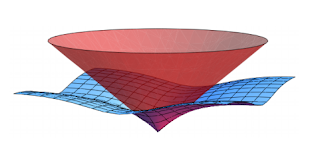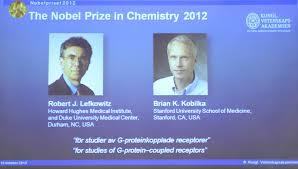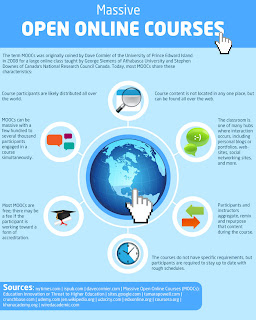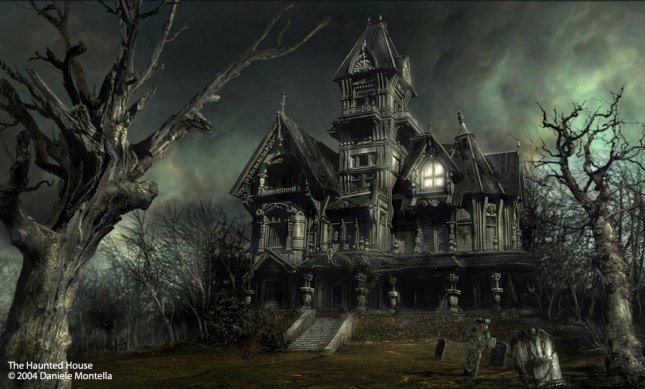Scrawl of Dreams : Phantasmagoria Project
The full moon illuminated the room casting a silvery sheet across my bed where I Lay. Smoke drifted through the room as I blew strange unearthly shapes into the darkness.” What are those?” Abby looked up at me and took the cigarette out of my mouth. She took two drags then blew out rings of fine smoke. “Are they from Scrawl?”
I didn’t look at her instead I just raised my right hand which began to
shimmer in the silvery bands of lunar luminescents. “No but this is.” We both looked at my hand as I turned it this way and that and then she grabbed it and laced her fingers through mine. Her honey colored skin mixing with my chocolate. “It doesn’t look fake.” She ran her hand down my arm to my chest and to my manhood. “And this is definitely not fake.” I felt her converse with it. For a girl who didn’t really like guys she was very good at it.
I then repositioned her so we could taste each other, I’d been working with her for four years and I’d be lying if screwing her weren’t something I’d thought about on numerous occasions. And these circumstances are as good as any no strings just pleasure. She turned back around and mounted me her eyes fluttered as we got in rhythm, it wasn’t hard we’d been at this for a while. I gripped her hips and pulled myself up toward her pressing my head against her breasts, she wrapped her hands around my head cradling me almost as if to say I’d make you happy if I could but I know I can’t.
I turned her over onto her back and she wrapped her legs around my waist, our fingers laced and we looked into each other’s eyes as if to divine whether or not we were both really there or just using it to mask our lost hopes and sad lives or maybe just mine. Had we been paying any attention we would’ve notice the faint buzzing of a phone. We finished about at the same time, I was to my credit able to hang on while she convulsed around me.
“Thanks, that was fun.” She rolled over and looked at her phone. “I’ve gotta go okay, try not to kill yourself while I’m gone, Jace.”
“I promise nothing.” I chuckled as she began to dress. “Come back whenever you want.”
“I don’t know if I’ll want to.” She looked down at me from her standing position, with melancholic eyes. The same eyes she always had when she had bad news. “That was Kris, she wants to meet and try to patch things up.” This happened once every six months, she and her girlfriend of three years would get into it bad, real bad like fist fighting bad. She would come to my place to talk, because why not share your problems more pathetic than you. It’d start in the living room and then end up in the bedroom, the first time it happened I was shocked but we’d been friends for a while even before the Project finding each other on a forum for people who had come into contact with another world.
“That’s cool, I hope it works out this time.” I always told her that, and maybe the first couple of times I meant it but after the last couple of times I didn’t really care.
“Thanks.” She placed a kiss on my cheek, put her pink hair in two pigtails and walked out of the door. I lay there still watching her afterimages leave again and again, a gift from Scrawl to her. It was sure a hell of a lot better than my gift, this red right hand.
The alarm on my phone got me up at 8am, I was still here still on earth, back to a life of searching for the world that I once thought only existed in dreams. This was of course until I met Abby who introduced me to Dr. Barry Swather, thought it was funny that he was a brotha whose last name meant black. That’s how I ended up waking up at 8am, eating breakfast, taking a shower, brushing my teeth in that order. The good doctor and his wife Felicity introduced me to a project funded both federally and privately that researched the quantum field theory of multiple realities. They were interested in one reality in particular, the same one I’d been trying to get back to since I first fell into it at thirteen like Alice through the looking glass. Scrawl was our realities next-door neighbor and in some ways it was similar it revolved around a star and was the third planet from it, there was a breathable atmosphere and sustainable habitat. It was however radically different in many other ways that I myself don’t quite comprehend. I put on the last clean collared shirt I had, a tie, because I’m going to work, some jeans, my boots and a leather jacket. I coasted out of the door, happy that I can say something that most people can’t. I love my job.
“Right on time, guy.” Josh shot me the finger guns as I walked into the building. He did that every time anyone entered the building, likeable guy if not a little corny. He played around a bit but had a fool’s wisdom for lack of a better word. “ Everyone’s just coming in.”
“Thanks Josh, Abby come in yet?” I walked toward the elevator.
“I kinda thought she’d be with you compadre, I heard she and Kris were on the rocks again.” He looked down at his desk, he was the guard at the facility and had a console that allowed for access to lower levels of the building where incidentally Project Phantasmagoria was taking place. To my understanding this building was built back when Endwater was a new town, I’m guessing back during the industrial revolution or something, meaning that the lower levels were either built before or during that time. For what purpose I don’t know but it does make me wonder as I stepped into the elevator.
“Uh, yeah heard about that.” The problem with working on such a small project everyone knows your business. Though I suppose, that time that Abby came to me crying in the men’s bathroom and we stayed in one of the stalls for half an hour didn’t help. “Well I’m going down, Josh. Thanks”
“No problem buddy, have fun with all that world jumping stuff.” He lifted his console put a key in it and pushed it down as the doors closed the lights flickered and there was a noticeable shift as if the elevator reconfigured itself into something else. Then I began to go down, down, down. The elevator jolted and came to a halt I didn’t even need the doors to be open to know that they were working on a session, that’s what we called the experiments that were preformed with and on us. When I walked out whirring machines greeted me along with flashing lights, there were two people a man, older than me short cropped salt and pepper hair he had a mustache wore slacks and a polo shirt. This was doctor Barry Swather. The woman with him was wearing a skirt with a gray blouse, flat shoes and glasses, she had less signs of aging, her skin was lighter than his and her hair was only its original black, her name was Dr. Felicity Bright. There were two chairs reclined with trodes hanging from the ceiling above them. They were attached to two people a man and a woman who had their eyes closed caught in the middle of REM sleep.
“You’re early, Mr. Washington.” The Dr. Swather “Ms. Santos and Mr. Davis will be in their respective sessions for half an hour more.”
“Which is good because your partner still isn’t here.” Dr. Bright was monitoring the two peoples brain waves. “So relax for a while.”
“Okay, I’m gonna go and have a smoke.” I made my way back to the elevator and stepped in it hummed as the jolt took me up. I slid a cigarette out of my sleeve and just before I reached the door I noticed Abby and Kris kissing out front of the building. I kept my head down as I hit the cool morning air and lit up. Kris was taller than Abby she was also a model, her raven hair complimented her angular face and the white dress and heel’s she wore accentuated her Amazonian figure. Brick house was an understatement. Abby wore skinny jeans a plaid shirt and canvas sneakers. There was a snapback trucker hat connected to her belt and although she was smaller than Kris and her breasts weren’t as big she made up for it with hips and an ass that could be use a shelf.
“Hey Jace.” Kris came up to me with Abby sheepishly in tow. “Take care of my girl in there, I don’t wanna lose her again.” She looked into Abby’s eyes with all the love in the world. Abby looked at her and then at me, If only she knew how much I took care of her. But I didn’t have the heart nor the gall to tell her that.
“Gotta look out for my partner.” I smiled.
“And I thank you for that, I don’t know much about this alternate world but from the way Abby makes it sound, it’s not at all safe.” They kissed again and Kris drove off, Abby didn’t look at me as she walked toward the entrance. I wasn’t going to press her about anything, we had a job to do and that had nothing to do with our personal lives. When we got into the lab Davis and Santos were leaving, the latter smiled at us and the former shook her head. We got into the chairs and attached the trodes our heads, as if we wanted nothing more than to leave our world. I know that’s what I wanted; to be honest I gave up trying to figure Abby out two years ago. We were there in a flash, standing in a verdant area, where the trees were made of a substance that seemed at times like wood and at times like vine. They shifted this way and that in what appeared to be writhing movements that entangled them in each other. This place was dubbed the Dancing forest. Abby walked through a few of the trees as her abilities here allowed her to and as she did I could already feel my form shift. It started with my right hand it always starts with that one it moved up my arm and spread across my body. It felt as if I’d become completely numb and then everything went red.
“Come on, I always worry when you change.” Abby was standing above me her after images shimmering behind her.
“Thank you.” My voice was alien in my ears. I felt much different; I was leaner but stronger, lighter but more durable. I was no longer human not fully. “Where are we heading this time?”
“The doc said we have to find more Stasis from one of the Fourth Well’s that are in this forest, the need to examine the particular dimensional signature that is possessed in this forest. They are trying to find a particular energy signature that would allow people who haven’t been to Scrawl into the reality at will. They also want to know why those of us that have been to Scrawl before were allowed access in the first place.”
“Sounds like a plan.” As I spoke those words the ground began to move as it shifted under the weight of something enormous. Scrawl was a different place than earth but it had dangers all the same. One such danger was the giant creature that came lumbering towards us causing the trees to either slink aside or be flattened.
“Oh man it must be feeding time or something.” Abby looked in the direction that the vibrations were coming from as soon as I did. It was massive with four horns two at its head and two at the back where a tail would’ve been, it was a cross between a bull and a stegosaurs. We called it Bethsmaur, it had to weight at least 50 tons and was as wide as a warehouse. We wouldn’t be able to get out of its way in time so I did the only thing I thought made sense, I planted my feet in the ground braced myself and caught it by the horns. The thing about the creature that I’d become is that it was powerful, 100 tons lifting powerful. Its name was something I couldn’t remember or pronounce properly so I took to calling it Grendel, not after the Beowulf creature but after my favorite comic book character.
“You okay there, Jace?” Abby stood a little ways behind me and to the left showing that she was confident in my ability but wasn’t stupid. Although either way she was safe since she could phase through matter at will.
“Just fine Abby, I’m just gonna redirect this guy a little bit.” I used the Bethsmaur’s momentum to hoist it up in the air and toss it in another direction. I’ve seen those things demolish mountains I doubt a little rough house would kill it. “Now where is this Fourth Well we’re looking for?”
Abby retrieved a small sketchpad from her pocket, opened it to a page with the drawings of a compass on it. “ It’s two miles in this direction.” We began to walk as the trees refitted themselves to accommodate for us just as they had for the Bethsmaur only this time the radius was smaller.
“Is this one guarded?” I looked at her for confirmation, apparently there had been some shake-ups in Scrawl since I had been there as a child. The first Fourth Well we had arrived in was guard by some short of monstrosity; it went toe to toe with me and didn’t flinch after taking my hardest hits. We finally killed it when Abby phased through it and took its nervous system with her. We had no idea what it was but after the fourth one we encountered in a well we caught on.
“It doesn’t say but that doesn’t mean anything.” We continued on. “We can only be on our guard.” The grotto wouldn’t be far from where we entered, they usually never were. We moved along through the forest I was faster than Abby though she could maneuver more easily than I so I had an idea.
“Can you transfer your phasing ability to me?” I sat her on my shoulder. “I move faster than you, but you maneuver better…”
“I get it, but you forget that we’ll be walking around here forever until we tell Scrawl how, we’re gonna get there.”
This was an odd fixture of Scrawl the whole worlds physics ran on art, so unless you recited a poem or sang a song about the place you were going you’d never get there. You could be walking in the same forest forever until you told it where you wanted to go. “Why does it have to be me?”
“Because, I did it last time.”
“Okay, Fine.” I stopped walking. “I guess I’ll sing then.”
“Oh, great.”
We track through the forest/ Here sway apparitions/ For what we accomplish it’s more than a mission/ A void we must fill with ideas that are novel/ With possible places that are probable/ We’ll face down all things and brave through the slaughter/ for we wish to find oh that wall made of water.
And just like that we were standing in front of the grotto its entrance shimmered like shattered glass in the sun. There was a mist that emanated from it at one time it felt like a blanket and then would feel like little dew drops. “I’ve never been to a world where the weather behaves like a photon.”
“Well we’re here, let’s get what we came for and…” It was upon us like that, or rather on me Abby phased just in enough time to get out of the way I however was flattened by a gaggling horror.
“So much for an easy mission?” I struggled and finally got the creature off me, throwing it clear across the pool that was the fourth wall. “Damn Unbound.” I got my bearings quickly and leapt across the pool toward the monstrosity as it wailed at my advance. We slammed into each other; it swung its gangly barbed arm at me in an attempt to cut me in two. “You’ve got some swing on you.” I connected with an upper cut straight to the Unbound’ s jaw sending its head spinning very literally and causing it to rise off the ground a few feet. I extended my arm a few inches past its natural length and grabbed it out of the air, brining it down to the limestone floor with a force that made the cave shake. It was still then, either I had killed it or knocked it out, this was my fourth time fighting one of these things so the latter was more probable than the former.
“Well you certainly put the exclamation point on that huh?” Abby was already filling a vial with the liquid of the Fourth Wall “Well let’s go.” She opened the notebook and poured the liquid from the Fourth Wall onto a blank page.
“ That was quick.” I leapt over the pool and landed right next to her. “Thanks for the assist by the way.”
“You’re a big strong man, you can handle it.” She smirked as she closed the vial.
“ Ya know what?” I stood in front of her. “ I’m tired of this.”
“ Tired of what sir?” She cocked an eyebrow.
“ This, us, you!” I threw my arms up in the air. “ You and Kris break up, we fuck and not just fuck, we fuck each other’s minds away and then you and Kris get back together and you treat me like I’m just another man.”
“ You never told me how you felt.” She looked away from me. “ And you knew nothing could come of this, of us.”
“I knew that, but did you?” I flexed my fingers nervously. “ I know why I’m unhappy and it’s because I can’t be here all the time, but what about you?”
“What are you…”
“There are any number of guys you could sleep with but it’s always me. You think I wanna smile in Kris’ face knowing that the night before…Look you wanna be with her that’s fine, but if you wanna be with me then fucking stop playing games.” I must’ve looked ferocious because she was noticeably frightend.
She then walked towards me I knew what she was about to do and I wasn’t about to let her. Abby’s phasing is a product of her contact with Scrawl it seems to come in handy during dangerous situations, ones like this. “ We have to…” She bumped into my chest. “What did you?”
“I spend much more time here than you do, any moment I can get I snatch it. You know the Grendel is adaptable so why do you think I wouldn’t be able to find a way to change my density so you couldn’t phase through me?” I crossed my arms. “ I know you Abby, as intimately as you know me we need to have this conversation…”
“ You don’t have time.” He stood in the entranceway, his brown cloak draping over his head and figure. He wasn’t tall but he seemed massive and I had recognized him instantly. “ There is a far more important conversation that needs to be had.”
“ What are you doing here?” I turned and looked at him.
“ You know this person?” Abby looked at him then at me.
“We discuss that later, now dispose of that beast.” The robbed man raised a cloak wrapped hand and pointed behind us as the Unbound threw itself over the pool.
I grabbed Abby and threw her at the creature, she flew like a cannon ball and phased through it. The Unbound came down in pieces, crashing to the ground at me feet a putrid mess. Abby landed on her feet gracefully “You could’ve given me a little warning before you did that.” She dusted herself off.
“No time for that, we needed to act and since you can just drift through things I knew you’d be fine.” I mentally scolded myself for that because it seemed petty. “ Okay old man what do we need to talk about?”
“ The fate of both worlds what else?” the robbed man removed his hood to reveal to us the face of a 30 year old dread locked and bearded. “And don’t call me old, I didn’t like it when you were 13 and I don’t like it now.”
“Excuse me, but who is this man?” Abby came walking back around the pool small hands on wide hips.
“ It’s good to see that your manner’s haven’t changed in fifteen years.” He walked up to her took her hand kissed it; he was such an antiquated fuck. “My name is Makai Sirius Xavier Nova, I am young Jason’s benefactor, guide and mentor.
“Cut the shit old man, this isn’t Great Expectations.” I pushed them apart. “ Makai is the man who gave me the hand and saved me from the Grendel that took my original one.”
“And yet the child treats me like a vagabond.” Makai looked me square in the eye. “ I’m practically your father.”
“Oh come on cut the sh…” Abby raised a hand to stop me.
“Look that’s cool and all but what was it that you had to talk to us about?” She was giving Makai her full attention.
“ Oh yes, well there is a rumor that the Color Walkers have come back.”
“ Who exactly are the Color Walkers?” Abby crossed her arms and Makai then grabbed her and uncrossed them. “Wha..”
“I need you to be receptive child, he knows this story already.” Makai nodded at me. “She’ll be here soon by the way.”
Something must’ve changed in my face because Abby frowned as if to say, who is she? ‘She’ was the woman that I’d wandered into Scrawl to meet, she was the fleeting vision of beauty in the corner of your eye on a crowded street corner. She is the woman you dream you’ll meet in your, well your dreams. Seeing her again would take some of the tension off. I wandered off outside of the grotto and into the forest and just as I did a tree flattened itself and she appeared but she was not alone, there was a young lady with her, who was around my age they both had dread locks but the lengths were different.
“Hello Jason, how are you?” Her name was Juniper Andromeda Vera Luna , she was the most gorgeous woman I’d ever seen in her flowing robes she was also Makai’s wife. She moved as if her shape was just an hourglass holding water, smooth fluid motions that wasted no steps. “ Allow me to introduce me to my friend, Sierra.”
She stepped forward without hesitation; it’s hard to forget that you look like ferocious monster however times like this it’d slip my mind. She was pretty and not just in a physical manner, there was a conviction about her that was palpable. She was taller than Abby and chest to hip ratio was definitely on par with Kris’. She wore a sun dress the color of earth and leaves and she was barefoot. We shook hands hers was small in mine but she didn’t seem to mind and then she smiled and in that smile was all the magic of Scrawl in a face. “ It’s nice to finally meet you, June’s told me a lot about you.” She put her other hand on mine and we looked at each other for a long while. “ She said you understand Scrawl like I do, what it means.”
“Uh, um, yeah it’s possibility made probable.” I must’ve blushed because she did too. “ Uh how did you first come to Scrawl did you just wake up here like I did?”
“Sierra, was brought to Scrawl by our descendant.” Juniper walked over and put a hand on Sierra’s shoulder.
“ That’s –uh cool…”
“Ahem.” Abby walked out of the grotto with Makai. “Am I interrupting?”
“No, we were just getting acquainted.” Sierra looked at Abby and slightly bowed but didn’t let go of my hands. “I’m Sierra.”
“Abby, his partner and we’ve got to be going.” Abby put her arm under mine and began to pull me back toward the Fourth Well. “ We’re on a mission, Remember?”
“Get him to fill in the details.” Makai called after us. I looked back to see the three of them as the mist cast itself on us once again. Sierra’s eyes enraptured me and I wanted to stay with her there or at the very least find a way to contact her in the real world.
“How do we get in touch?” I called to her.
“ I’ll find you, trust me.” She smiled wider and waved.
“Come on Romeo.” Abby pulled me through to the doorway. “We’ve gotta get back, no time for romance.”
“Unless it’s with you right?” she let go of my arm and we both stopped in front of the pool.
“Jace, can we not?” She looked at me with pleading eyes.
“Whatever Abby, just don’t block me okay?” I stood at the edge of the pool, the water that cast no reflections only showed you where you wanted to go. “ Give me the page.” Abby opened the notebook, tore out a page and handed it to me. I then balled it up and dropped it into the liquid; we sometimes liked to pre writing poems and use them instead of coming up with something on the fly. “Let’s go.”
We took the plunge and the Stasis was warm, like the light of the sun on a cold day, like a mothers womb, like love.
“How are you all?” Felicity greeted us with a concerned look. I got up and removed the trodes from my head. “ You were under for a long time.”
“We’re okay.” I looked at Abby who looked away from me and turned toward doctor Swather.
“We’ve got the sample.” She closed her eyes and began to recite a poem.
This is the lifeblood
This planet it has
It will sure grant you passage
And travel where as
You just need a poem or song you can spare
It takes you to places both now and then here and there….
The funny thing about Scrawl is that everything was translated to art in the real world a world that oddly enough turned art into entertainment. Scrawl was the pure aesthetic expression, earth was the shallow mask Earth was the movie Scrawl was the book. I didn’t wait for Abby to finish I just left, Sierra was on my mind, how she seemed so at home in Scrawl like she belonged there, just like I did. She was just like me. I shook my head and laughed a little bit, Scrawl keeps giving me more reasons to want to be there. Like it’s enticing me, I lit up a cigarette, drew down on Josh with the finger guns and walked out into the crisp air of the day, thank God for leather jackets.







